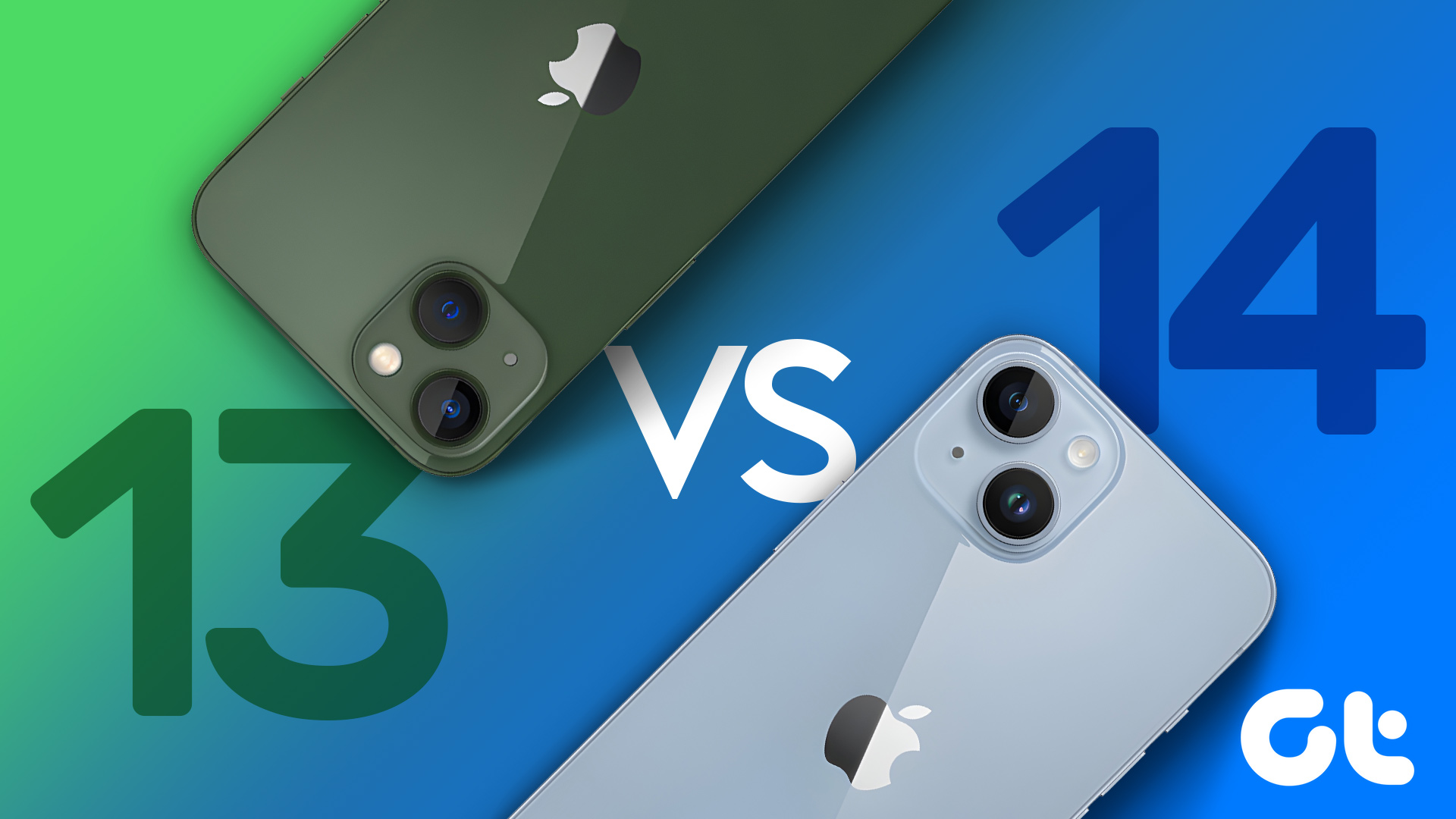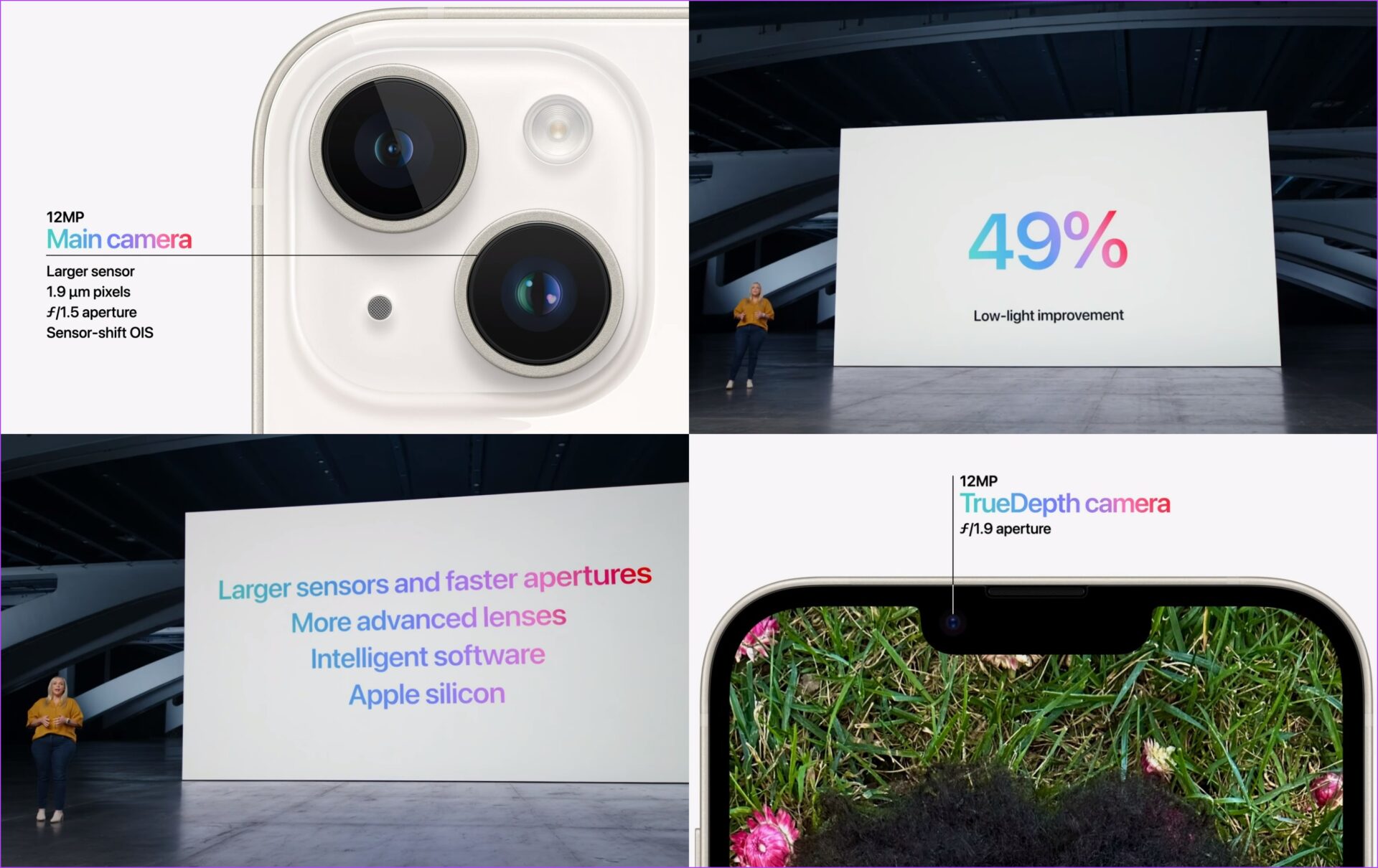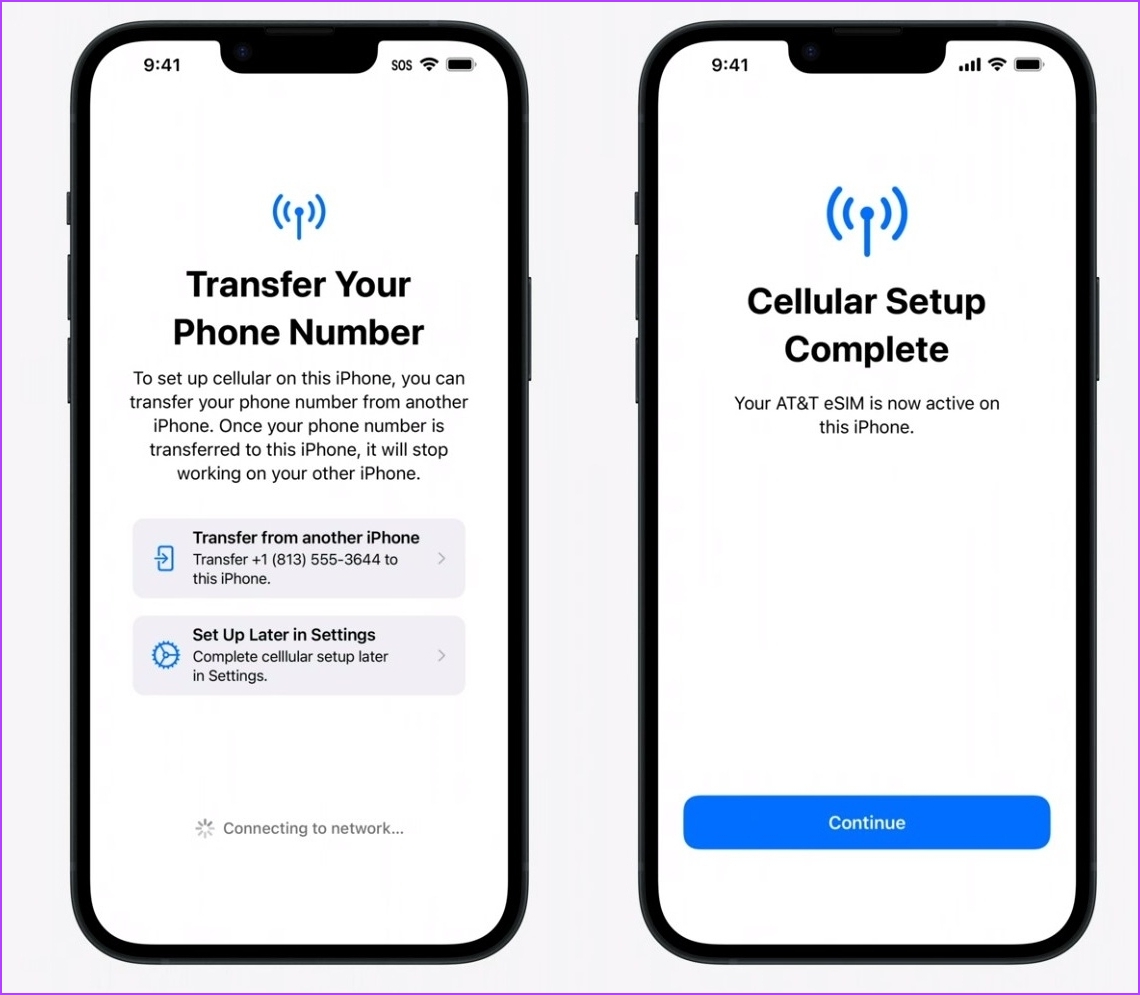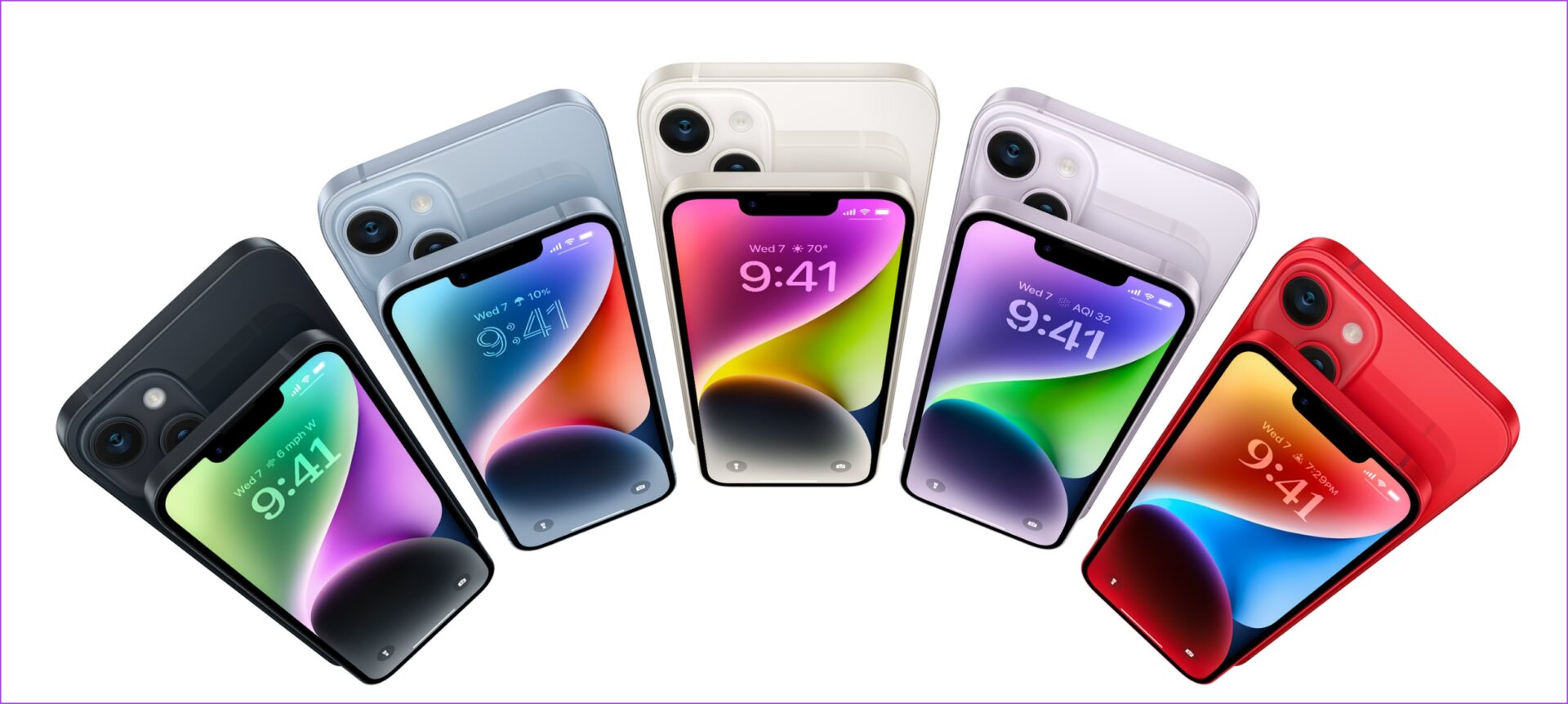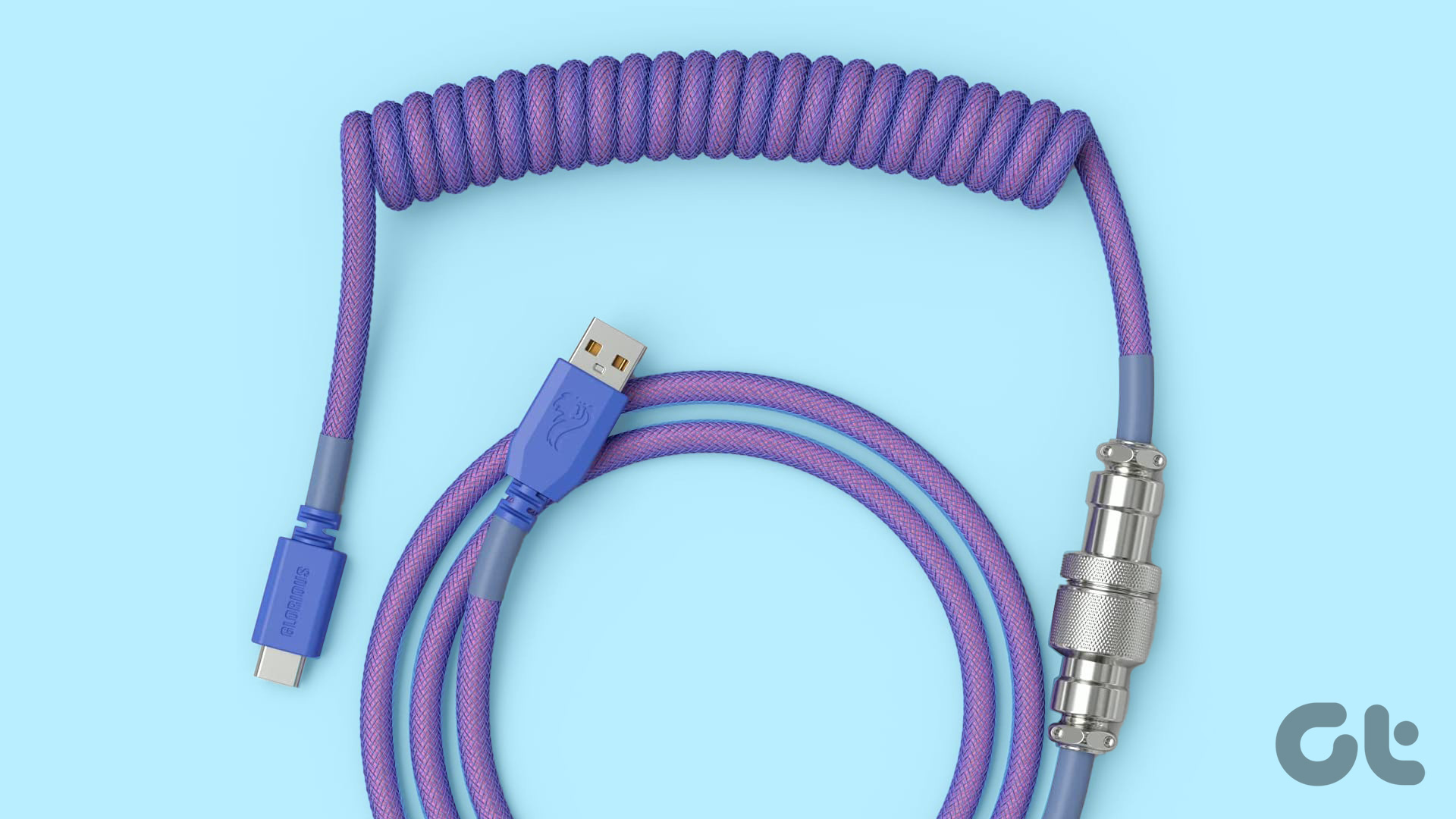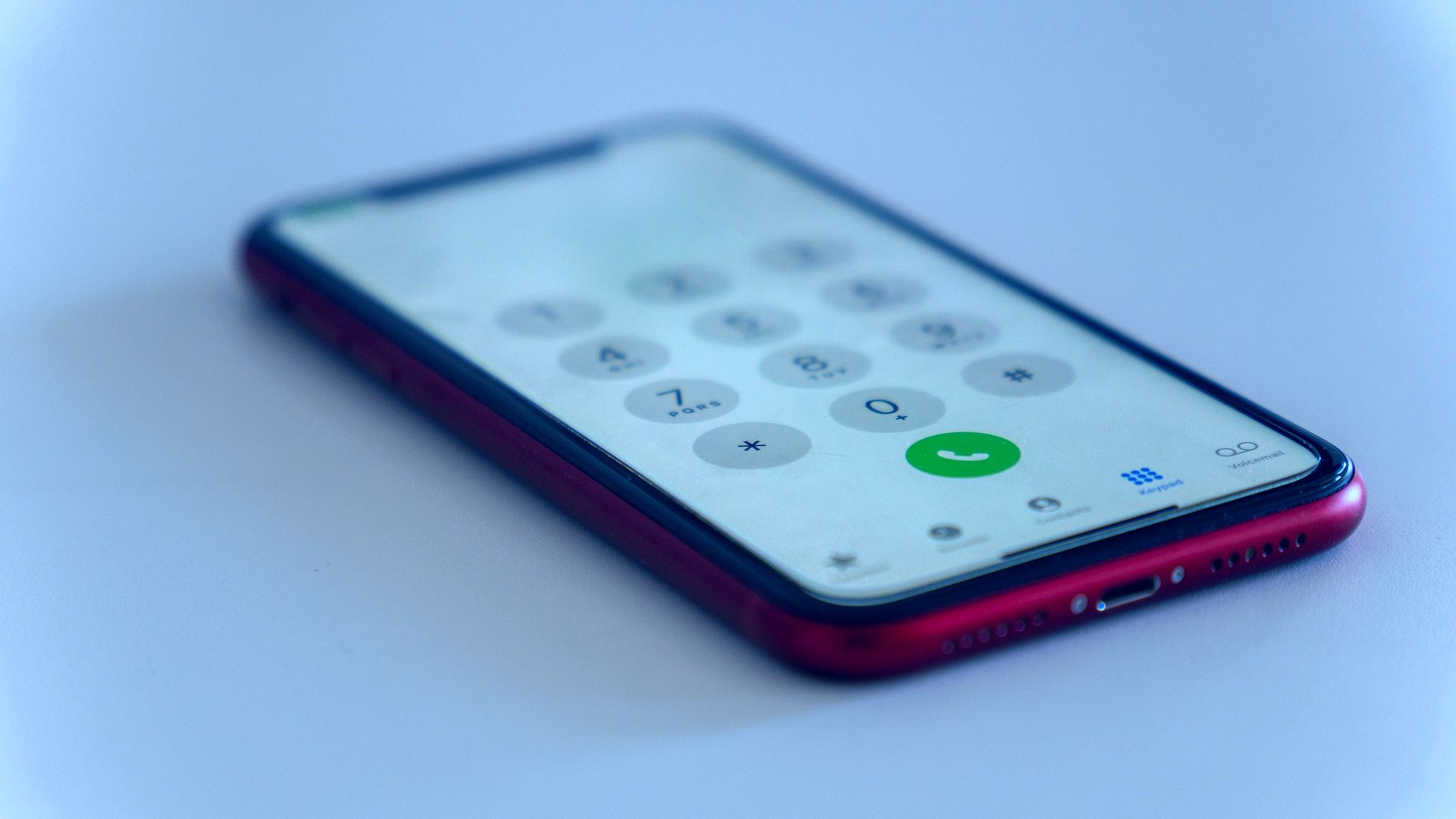In true Apple fashion, an iterative upgrade means that a new phone looks exactly like the previous generation. This is not surprising, as we’ve seen it with the 6 and 6s, 7 and 8, and even the iPhone X and XS. But, the good part about this iterative upgrade is that there are some features we longed for on the standard, ‘non-pro’ variant of the iPhone. Dive into this comparison of the iPhone 14 vs. iPhone 13 to know more!
Difference Between iPhone 14 and iPhone 13 at Glance
Before we get into the details, here’s a quick overview of the iPhone 13 vs. iPhone 14 in terms of the specifications on paper, as officially mentioned by Apple. However, it’s not everything about what is on the spec sheet. There’s much more to know about the iPhone 13 vs. iPhone 14. Let’s move on to the bigger picture.
iPhone 14 vs. 13 – Design and Display
The standard iPhone variant is undoubtedly one of the best options if you are looking for a compact smartphone. And iPhone 14 doesn’t deviate. It has a 6.1″ screen, the same size as the iPhone 13. Further, both devices look similar in their designs. They have the same retina OLED display, ceramic shield glass on the front, and glossy backs crafted using aluminum and glass. And unlike the minor change in the iPhone 13’s camera module design that distinguishes it from its predecessor, we see no changes (except for a slightly smaller notch) to differentiate iPhone 14 from iPhone 13. While we are talking about the differences, you should know that you won’t get a SIM tray on iPhone 14 US models. Well, not the kind of differentiating factor many were looking for. In addition to the iPhone 13 features, Apple has also added some intriguing features to the iPhone 14 under the hood (discussed later). But what is still exclusive to the Pro series is a ProMotion ‘120 Hz’ display. Apple has given iPhone 14 the same 60 Hz display as its predecessor. However, the most notable difference in the iPhone 14 Series is the revival of a larger non-Pro variant called iPhone 14 Plus with a 6.7″ screen. If you are in the subset of people who want a larger iPhone but don’t want to shell out on the Pro variant, iPhone 14 Plus has you covered. Farwell to the 5.4″ mini though, as Apple has skipped its renewal.
iPhone 14 vs. iPhone 13 – Processor and Performance
The processor was an area where the standard iPhone did not face discrimination from the Pro variant. However, for the first time ever, the new iPhone 14 doesn’t feature the new chipset i.e., A16 Bionic, which is limited to the iPhone 14 Pro Series. So, which chip exactly does iPhone 14 feature? Well, iPhone 14 features an A15 Bionic chipset used in the high-end iPhone lineup last year, i.e. iPhone 13 Pro. Hence, it isn’t the exact same as iPhone 13 and Apple claims that it offers an 18% improvement over iPhone 13. So, it does not disappoint. Moreover, A15 Bionic is a fantastic processor. The iPhone 13 holds up like an absolute champ even today. With this upgrade in iPhone 14, we can see it last even longer.
But Is the A15 Bionic Enough
Whenever Apple releases a new chipset, they throw in extra trillions in the number of processes it can handle, and add stats like ’16x faster, and 18% more efficient’. This paints an image that the previous-gen processor is timid and outdated – but that is not the case, and it’s fair to say that the A15 Bionic is still a worthy processor to feature on an iPhone. This is because of how advanced and powerful Apple’s chipsets have gotten in the recent few years. While an upgrade is preferable (I mean, who wouldn’t want that), the A15 Bionic will suffice for all kinds of activities you would want to do on an iPhone 14.
iPhone 14 vs. iPhone 13 – Performance and Battery Life
Other than the chipset, we get an extra core of GPU in the iPhone 14 and Apple says it offers a 15% better graphics performance. So, if you’re a gamer and don’t mind spending $100 extra, iPhone 14 is the one for you. The iPhone 14 also reportedly comes with two extra gigabytes (6 GB) of RAM compared to 4 GB on the iPhone 13. So, that’s something. Furthermore, the iPhone 14 has almost similar battery capacity as the iPhone 13. Well, according to MacRumors which obtained the data from a Chinese regulatory database, iPhone 13 offers a 3,227 mAh battery whereas iPhone 14 boasts 3,279 mAh. Well, that explains the 1-hour increase in the battery life with video playback on iPhone 14. Additionally, no charger this time too. So, whether you buy iPhone 13 or iPhone 14, you will have to buy a power adapter.
iPhone 14 vs. iPhone 13 – Camera
The iPhone 14 gets a new main camera, but we feel it is an iterative upgrade like the whole device itself. However, Apple claims that the iPhone 14 now can get you 2x better low light performance in comparison to its predecessor. This is because the iPhone 14 has a 1.9-micron sensor, meaning bigger pixels and a faster f1.5 aperture. This should add up to a camera that can produce images with less noise and better quality. Apple also mentioned using better software processing capabilities with the introduction of the ‘Photonic Engine’, and ‘Deep Fusion’ – which simply put enables better image processing for better output results in comparison to the iPhone 13. iPhone 14 has a faster f1.9 aperture and the largest front camera yet, and for the first time, there is an autofocus feature on the front camera. Apple also mentions a significantly better low light performance on the front camera. The iPhone 14 camera also has an action mode, which uses a full sensor while capturing the video which Apple says can make the video look ‘incredibly stable’. And it supports Dolby Vision HDR as well. Impressive, right? Without purchasing the device, it would not be fair to make a conclusive assumption about how much better the camera is. So, all we can do is rely on Apple’s claims of using a better camera setup.
iPhone 14 vs. iPhone 13 – Connectivity
Apple wreaked havoc when they announced removing the SIM tray from the iPhone 14 US models. So, you only have the option to use an eSim on the iPhone 14. This makes the iPhone 13 the last ever iPhone with a SIM card slot (at least in the US) and that felt peculiar to write. Apple says this is more efficient and safe, as you can digitally load a sim card without a physical one, and you can use multiple carriers at once. They also mentioned it is easier to secure your lost iPhone if it has an eSim. Whether this is a justification for the SIM slot removal or forcing users to evolve the way they interacted with carrier services, this sure is a typical Apple-Esque controversial move. Besides, this is a déjà vu moment (if you know what we mean). Since this move is being pushed only in the US, we are eager to see how users adopt the same. However, we wouldn’t recommend iPhone 14 if you travel a lot or constantly switch between Android and iOS devices. It can be a hassle. So, a brownie point to iPhone 13 for retaining the SIM tradition. Leaving this on the side, you get all the other modern connectivity capabilities, including 5G on both iPhone 13 and 14.
iPhone 14 vs. iPhone 13 – Storage and Colors
Although the color schemes of iPhone 13 and 14 remain the same, there are new additions (and subtractions) to the new iPhone. The iPhone 14 comes in Blue, Purple, Midnight, Starlight, and (Product) Red. Whereas, iPhone 13 comes in Midnight, Starlight, Blue, Pink, Green, (Product) Red. The (Product) RED version is much brighter, and the rest of them have toned-down colors in iPhone 14. We are a fan of the lighter blue. However, you do not get the green or pink variant on iPhone 14. Both, the iPhone 14 and iPhone 13, have similar storage capacities. They come in 128 GB, 256 GB, and 512 GB variants. With app sizes increasing every day, our recommendation would be to opt for the 256 GB variant. However, if you are a light user and rely on cloud services, the base variant of 128 GB must suffice.
New Safety Features on iPhone 14
Apart from the devices, Apple unveiled two new interesting features for the iPhone 14. These are the major differentiating features between iPhone 13 vs. 14.
Emergency SOS via Satellite
Another safety feature that Apple introduced in the September 2022 event, is the emergency SOS via satellite connectivity. This is a feature that helps you connect to emergency services in regions of no cellular connectivity – by directly connecting to a satellite.
Crash Detection
The iPhone 14 can detect an event of a crash and immediately contact emergency services for help. The backend technology is capable of detecting sudden speed shifts, cabin pressure changes, and loud sounds of impact while correlating it to real-world crash data. While this is a feature no one ever wishes to use, it is indeed a big leap in safety features present on an iPhone.
iPhone 14 vs. iPhone 13 – Pricing
Let us get to the numbers – Apple mentioned that the iPhone 14 will be launched at the same price, and here’s a quick comparison of the iPhone 13 and 14 Series.
iPhone 14 vs. iPhone 13 – Which Should You Buy
Well, the iPhone 14 by no means offers a significant upgrade over the iPhone 13. Sure, you get a bigger screen size and a better battery with the Plus variant, but the regular iPhone 14 does not offer a substantial upgrade. The camera is claimed to be better in low light, and you get new colors and an array of safety features, but we’re not sure if this can take your everyday user experience to another level. However, if you are using an iPhone 11 or even iPhone 12, this is a massive upgrade and for $799, undoubtedly a good buy. So, if you are using an iPhone 13, we suggest you wait for the next iPhone, or rather invest in the iPhone 14 Pro for an actual iPhone upgrade. The above article may contain affiliate links which help support Guiding Tech. However, it does not affect our editorial integrity. The content remains unbiased and authentic.
